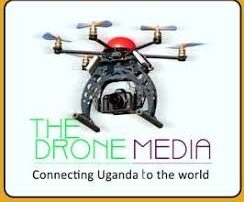Who wields power in Uganda? How about the world?
By Jeremiah Kaniampiha
There was a time when Hon John Patrick Amama Mbabazi was described as ” a super minister, mighty minister” etc. There came also a time when Gen. Kale Kayihura became a big name; he even transferred some of his powers to Boda boda group led by a one Kitata.
That Kitata, mbu moments before his arrest he had rubbished one of the powerful Army Generals; saying he only knew two Army Generals, President Museveni and Gen. Kale Kayihura. Kitata now knows where power lies. He was forcefully shown the way to this power in Uganda.
Apparently, there is an Army General, who wields mighty powers in Uganda. According to The Drone Media, Army General rotates the country (Uganda) and wherever he goes you see that power is surrounding him. Where he is camping now in Uganda, meetings that decide for this country never cease. Can you imagine, there are 5 helicopters in Gulu, which awaits for impromptu assignments! That is what we call wielding power.

Now, when you ask “who rules the world?” you commonly adopt the standard convention that the actors in world affairs are states, primarily the great powers, and we consider their decisions and the relations among them. That is not wrong. But we would do well to keep in mind that this level of abstraction can also be highly misleading.
States, of course, have complex internal structures, and the choices and decisions of the political leadership are heavily influenced by internal concentrations of power, while the general population is often marginalized. That is true even for the more democratic societies, and obviously for others. We cannot gain a realistic understanding of who rules the world while ignoring the “masters of mankind”, as Adam Smith called them: in his day, the merchants and manufacturers of England; in ours, multinational conglomerates, huge financial institutions, retail empires and the like.
Still following Smith, it is also wise to attend to the “vile maxim” to which the “masters of mankind” are dedicated: “All for ourselves and nothing for other people” – a doctrine known otherwise as bitter and incessant class war, often one-sided, much to the detriment of the people of the home country and the world.
